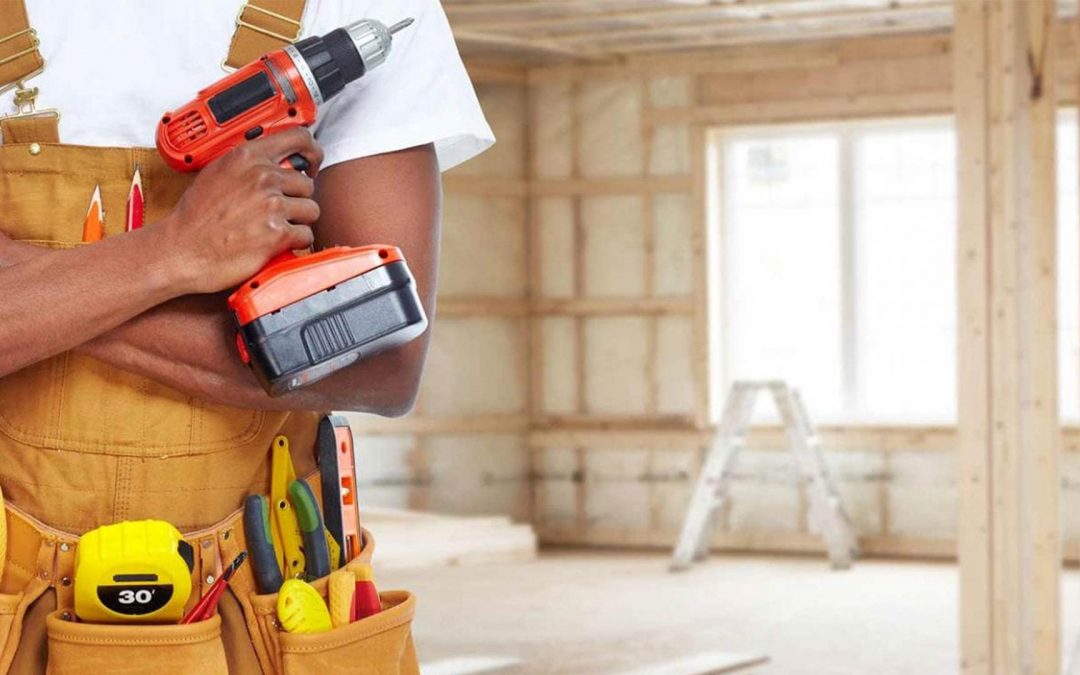It’s finally time to start that home renovation you’ve been planning and saving for. Maybe you’ve dreamed of this project for years, or maybe you’re just ready to make a change after months of working from home.
Whether you’re upgrading a room, improving your energy efficiency, or something else entirely, you need to consider the impact those changes will have on your homeowners insurance. Have you thought yet about whether you’ll need to increase your coverage? Did you know you’ll need to consider the liability protections of the workers who will do the job?
There’s a lot to think about, but don’t worry—this post will give you the best starting point for thinking about how a renovation project could affect your insurance.
What to Ask
We recommend talking to your agent about the following questions before you begin your renovation:
1. How will this affect my homeowners insurance during construction?
Renovation projects typically add value to your home, which makes sense because you wouldn’t start these projects if they didn’t. Home insurance companies, however, may increase the premium you pay for your plan. If you add $10,000 of renovations to your dwelling, for instance, then your insurer may add $10,000 to the total calculated value of your home.
We also recommend that you talk to your agent about renovation insurance, which we cover in greater detail in the next section.
2. What is renovation insurance?
Renovation insurance covers theft or damage to building materials, as well as the damage to the property if the foundation collapses. Those foundation damages can happen when water puts pressure on basement walls during construction.
You’ll want to know much renovation insurance costs, what you’ll have to do to maintain coverage, and how your existing homeowners coverage will change. To maintain your renovation insurance coverage, you may have to take actions like getting a certificate of insurance from the general contractor, verifying the contractor’s coverage is at least $1 million per occurrence, installing temporary lighting, and other steps.
3. What does renovation insurance cost?
We recommend asking your agent about this, but renovation insurance could lead to the removal of premium discounts and credits during the project, according to the International Risk Management Institute. If you don’t live in your home during the project, then you might incur a vacancy surcharge. A separate construction surcharge could cost about 35 percent of your annual premium, minus any discounts or credits.
4. Should I get builders risk insurance for renovations?
Your current home insurance policy probably doesn’t cover mistakes that your contractor made. Most policies don’t. The problem is, if your contractor makes a mistake, then the cost of fixing the problem would come out of your pocket.
To protect yourself, you should talk to your contractor about the insurance that they have to cover injuries to their employees. Specifically, you’ll want to know if they have liability insurance and workers’ compensation coverage. It’s acceptable to ask the contractor for proof that they have both policies. You can also ask any subcontractors involved in the project if they have the same protections in place.
Some people opt to hire a subcontractor themselves or even pay a friend to do the work. In those situations, you’re considered their employer and are responsible for providing compensation insurance.
5. Should I increase my home insurance coverage after the renovation is complete?
According to Insurance.com, you should consider increasing your coverage limits if the addition you made is going to make it more expensive to repair or rebuild your home. You’ll want to speak with your insurance agent about the estimated impact your renovation will have on your coverage. Before you begin your work, notify your insurance agent of the changes you’re planning to make to your home. Your insurer will verify that the new additions will be covered under your existing policy, and they’ll let you know if you need to extend your coverage as a result.
If you added a swimming pool or hot tub, for instance, then you may require liability protection or an umbrella policy. In some cases, you may be eligible for discounts if your renovations improved the safety of your home by, for example, updating the heating or electrical systems, or reinforcing your roof.
The Insurance Information Institute also recommends taking pictures before, during, and after the project so you have a record of the work that was done. You should also keep copies of contractor contracts and receipts of work done and any materials they bought.
Need help with questions about your own home renovation?
Give us a call or fill out the form below. We have agents ready to answer your questions with solid advice.
